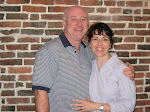1. Privately paying for long-term care means paying for care out of your own income, investments, savings and assets.
2. Long-term care insurance will pay for in-home care, assisted living, and nursing home care. This is the most appropriate and needed form of insurance protection available to us today. Long-term care insurance should be termed “lifestyle” insurance (it’s NOT nursing home insurance!). If your vision of your later years includes sitting at home in your own recliner, with your own remote control, watching your own TV….well, you should be planning for that future with long-term care insurance.
3. Reverse mortgages (Home Equity Conversion Mortgages) have become one of the most popular and accepted way of paying for many different expenses, including the cost of long-term care. Reverse mortgages are designed to keep seniors at home longer. A reverse mortgage can pay for in-home care, home repair, home modification, and any other need a senior may have.
4. Government assistance should be a last resort when considering how to pay for long-term care. This type of assistance refers to relying on the Medicaid system. Medicaid will pay for long-term care for seniors who cannot afford to pay for care themselves. Keep in mind that Medicaid is an under-funded and over-burdened system, therefore Medicaid resources are limited. This means that in many areas Medicaid beds in nursing homes are difficult to find. Families may end up driving long distances to visit their loved ones. Traditionally, Medicaid resources for in-home care are extremely limited, which means most seniors who apply for Medicaid end up in a nursing home type setting. The Deficit Reduction Act 2005 makes qualifying for Medicaid even more difficult for most families. Planning ahead is really the only viable option for families today.
5. VA Aid and Attendance Pension Benefit: The Veterans Administration has established a pension program whereby your purchase of personal care and attendant home services may be paid for through your acquired pension. If you are a Veteran or the surviving spouse of a Veteran who has served at least 90 days or more on active duty with one day beginning or ending during a period of war, and you are in need of assistance at HOME due to your disabilities, you may be eligible for VA's non-service connected disability pension.
Brought to you by www.rightathomemass.net.





